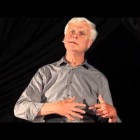Tag Archives:depression
Article: Not Hungry in the Morning - Dr. Kristen Allott, Naturopathic Physician share
 Nutrition is the cornerstone of good mental health. This is why it’s one of the first things I talk with my clients about when they start to work with me. Nobody is perfect, least of all me, but the more conscious we are about making sure to eat at least three meals a day, plus a few healthy snacks, the easier it will be for our mood to be calm and comfortable and out energy level to be active.
Nutrition is the cornerstone of good mental health. This is why it’s one of the first things I talk with my clients about when they start to work with me. Nobody is perfect, least of all me, but the more conscious we are about making sure to eat at least three meals a day, plus a few healthy snacks, the easier it will be for our mood to be calm and comfortable and out energy level to be active.
It’s not unusual, when I start to discuss this with my clients, for folks to tell me, “Well, I’m really not hungry in the morning.” Because breakfast so strongly sets the tone for our bodies for the rest of the day (because of chemical processes that need to be fueled in the morning, as well as other things), this is an issue that we need to tackle together.
In her article, Dr. Allott teaches us about why you actually aren’t feeling hunger, even though your body really does need more food. And, while she explains it in the context of breakfast, this is true for any time that our glucose level (“blood sugar”) goes low and kicks off a process in our liver that taps into our body’s emergency reserves.
PS – While you are on her site, you may want to explore. She has TONS of free resources available that really help to illustrate the connection between nutrition and mood.
International Bullying Prevention Association share
 The International Bullying Prevention Association provides resources, training, and information regarding the prevention of bullying, pulling from the latest in scientific research. Periodically, they host webinars that are geared towards parents and educators, for free! You can register to participate when it is happening live or, if you are a member (which costs $25 at the time of this post), you check out their webinar archives at your leisure. Additionally, they host an annual conference to discuss the latest research and programs that are being used successfully.
The International Bullying Prevention Association provides resources, training, and information regarding the prevention of bullying, pulling from the latest in scientific research. Periodically, they host webinars that are geared towards parents and educators, for free! You can register to participate when it is happening live or, if you are a member (which costs $25 at the time of this post), you check out their webinar archives at your leisure. Additionally, they host an annual conference to discuss the latest research and programs that are being used successfully.
The Effect of "Power Posing" Likely Depends on Context and Our Thoughts share
 I had mentioned Amy Cuddy’s work about power posing to a similarly scientifically-minded person recently and, after doing some reading on their own, they brought to my attention a blog article posted on the Scientific American website, The Dark Side of Power Posing: Cape or Kyrptonite, by Jay Van Bavel (11/212013). It took a look at Amy Cuddy’s work about ‘power posing’ and then pulled in some other relevant research findings. Basically, research suggests that there are traits within us and within our environment that affect whether power posing is helpful or makes things worse. One study found that, if you are a person who struggles with a lot of negative self-talk, power posing can actually have the opposite effect and decrease self-confidence. Other studies suggest that power posing can also be used to increase the likelihood of us doing things that amount to an abuse of power, such as: steal; cheat; or break traffic rules.
I had mentioned Amy Cuddy’s work about power posing to a similarly scientifically-minded person recently and, after doing some reading on their own, they brought to my attention a blog article posted on the Scientific American website, The Dark Side of Power Posing: Cape or Kyrptonite, by Jay Van Bavel (11/212013). It took a look at Amy Cuddy’s work about ‘power posing’ and then pulled in some other relevant research findings. Basically, research suggests that there are traits within us and within our environment that affect whether power posing is helpful or makes things worse. One study found that, if you are a person who struggles with a lot of negative self-talk, power posing can actually have the opposite effect and decrease self-confidence. Other studies suggest that power posing can also be used to increase the likelihood of us doing things that amount to an abuse of power, such as: steal; cheat; or break traffic rules.
I found Van Bavel’s article very interesting because, after I learned about Cuddy’s work, I had been curious about how it connects to the scientific research about the power of positive mental imagery. Research in the area of sports psychology has found a significant connection between athletes mentally rehearsing their craft and improvement in their ability to perform the tasks their sport requires. And trauma research has revealed that healing can take place when we re-imagine a traumatic event and role-play ourselves as powerful and able keep ourselves safe. So, after learning about how power posing affected body chemistry, I had wondered if simply imagining a power pose could shift body chemistry as well.
Because Van Bevel’s ‘Dark Side’ article is generally talking about the importance of our thoughts when we strike a pose, that what we are thinking affects whether we can use poser posing for ‘good’ or for ‘evil,’ it leads me to suspect that our body chemistry does change when we imagine ourselves doing a power pose. Hopefully, a researcher will take a look at that in the near future. More importantly, though, the notion that our thoughts can influence whether a power pose is a good thing, suggests to me that pairing the power pose with positive self-talk is critical so that we can increase the likelihood of using our power for the good of ourselves and for society in general. The next time you are doing your Wonder Woman pose before your next job interview, I would suggest that you are also imagining yourself speaking to the interviewer in a confident and personable way.
TEDx Talk: Feeling Good presented by David Burns, MD share
Cognitive Behavioral Therapy (CBT) is based on the premise that our thoughts, emotions, and behavior are all interrelated and affect one another. Because of this, if we learn to identify when we are having “thought errors” that distort our perception of reality, often skewing to seeing things in more a negative light, we can then Dr. David Burns is a well known researcher, clinician, and public speaker. He is one of the leaders in the development of CBT, having been trained personally by CBT’s founder, the world-renowned Aaron T. Beck, MD. In this short video, Dr. Burns uses stories from his life experience both as a clinician and as a person, to illustrate the power of CBT and how working to change our thoughts, in a real and genuine way, can have a profoundly positive effect on how we feel. CBT has become the strongest (most likely to succeed), “evidence-based” form of therapy for issues such as depression and Bipolar Disorder, various forms of anxiety (PTSD, phobias, Obsessive-Compulsive Disorder), eating disorders, and substance use disorders. This means that scientific research has been able to document that CBT really works for people.
TED Talk: Your Body Language Shapes Who You Are presented by Amy Cuddy, PhD (video) share
Using research science to back up her ideas (in a very NOT boring, sciency way) Amy Cuddy tells us how a simple thing like our posture affects us (our body chemistry and how we perceive ourselves) and other’s perceptions about us. Increasing how mindful we are about our body language, can impact things ranging from job success to that special person saying, “Yes!” when you ask them out for the first time. Through pictures, contemporary media clips, and interactions with her audience, Dr. Cuddy demonstrates what she has learned from her colleagues’ research and her own in a way that is easy to understand and entertaining to watch. I guarantee you’ll be sitting up straighter by the end of the video!
ADDENDUM (March ’16): The Effect of “Power Posing” Likely Depends on Context






